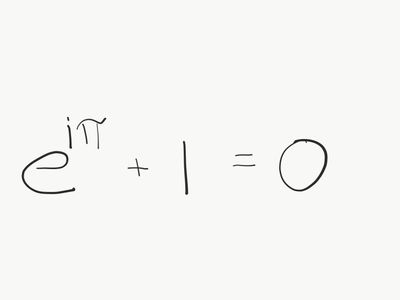Complex numbers in rectangular and polar form. Basic geometry and topology the the complex plae and on the Riemann sphere. Holomorphic, meromorphic and harmonic functions. Conformal mappings. Taylor and Laurent series. Radius of convergence and termwise differentiation and integration of power series. Classification of singularities. Poles and zeros, the argument principle and Rouchés theorem. Liouvilles theorem with applications. Differentiation and integration in the complex plane. Cauchy- Riemann equations. Cauchys theorem and Cauchy's integral formula with corollaries. The maximum principle. Residues. Applications to, for example, transform theory, heat conduction and electricity theory.
SF1691 Complex Analysis 7.5 credits

Complex analysis deals with functions of a complex variable, especially derivatives and integrals of such functions. Holomorphic funktions, i.e. functions that are differentiable in a complex sense, have a number of interesting properties and applications. It turns out that the so-called imaginary number i is very useful in investigating phenomena in our real reality. This course will be taught in Swedish. Information about the course round spring 2022 is available on canvas: https://kth.instructure.com/courses/31918
Information per course offering
Information for Spring 2026 Start 13 Jan 2026 programme students
- Course location
KTH Campus
- Duration
- 13 Jan 2026 - 1 Jun 2026
- Periods
Spring 2026: P4 (3.8 hp), P3 (3.7 hp)
- Pace of study
25%
- Application code
60883
- Form of study
Normal Daytime
- Language of instruction
Swedish
- Course memo
- Course memo is not published
- Number of places
Places are not limited
- Target group
- No information inserted
- Planned modular schedule
- [object Object]
- Schedule
- Part of programme
Master's Programme, Systems, Control and Robotics, year 2, LDCS
Master of Science in Engineering and in Education, year 4, MAKE
Master of Science in Engineering and in Education, year 5, MAKE
Master's Programme, Systems, Control and Robotics, year 1, LDCS
Master's Programme, Applied and Computational Mathematics, year 1
Degree Programme in Engineering Mathematics, year 2
Degree Programme in Engineering Mathematics, year 3
Master's Programme, Information and Network Engineering, year 2
Master's Programme, Systems, Control and Robotics, year 2
Degree Programme in Electrical Engineering, year 2
Master's Programme, Systems, Control and Robotics, year 1
Contact
Course syllabus as PDF
Please note: all information from the Course syllabus is available on this page in an accessible format.
Course syllabus SF1691 (Autumn 2019–)Content and learning outcomes
Course contents
Intended learning outcomes
After the course the student should be able to
- explain the meaning of basic concepts, theorems and methods within the parts of complex analysis described by the course content
- use concepts. theorems and methods to solve and present solutions to problems within the parts of complex analysis described by the course content,
in order to solve applied problems and to communicate with the help of mathematical language, even in other contexts.
For higher grades, the student should in addition be able to
- explain how different theorems and concepts are connected and deduce relationships from the given theorems.
Literature and preparations
Specific prerequisites
Completed basic course SF1626 Calculus in Several Variable or SF1674 Multivariable Calculus.
Literature
The course literature is announced on the course webpage four week before the start of the course.
Examination and completion
Grading scale
Examination
- TEN1 - Exam, 7.5 credits, grading scale: A, B, C, D, E, FX, F
Based on recommendation from KTH’s coordinator for disabilities, the examiner will decide how to adapt an examination for students with documented disability.
The examiner may apply another examination format when re-examining individual students.
If the course is discontinued, students may request to be examined during the following two academic years.
The examiner decides, in consultation with KTHs Coordinator of students with disabilities (Funka), about any customized examination for students with documented, lasting disability. The examiner may allow another form of examination for re-examination of individual students.
Examiner
Ethical approach
- All members of a group are responsible for the group's work.
- In any assessment, every student shall honestly disclose any help received and sources used.
- In an oral assessment, every student shall be able to present and answer questions about the entire assignment and solution.